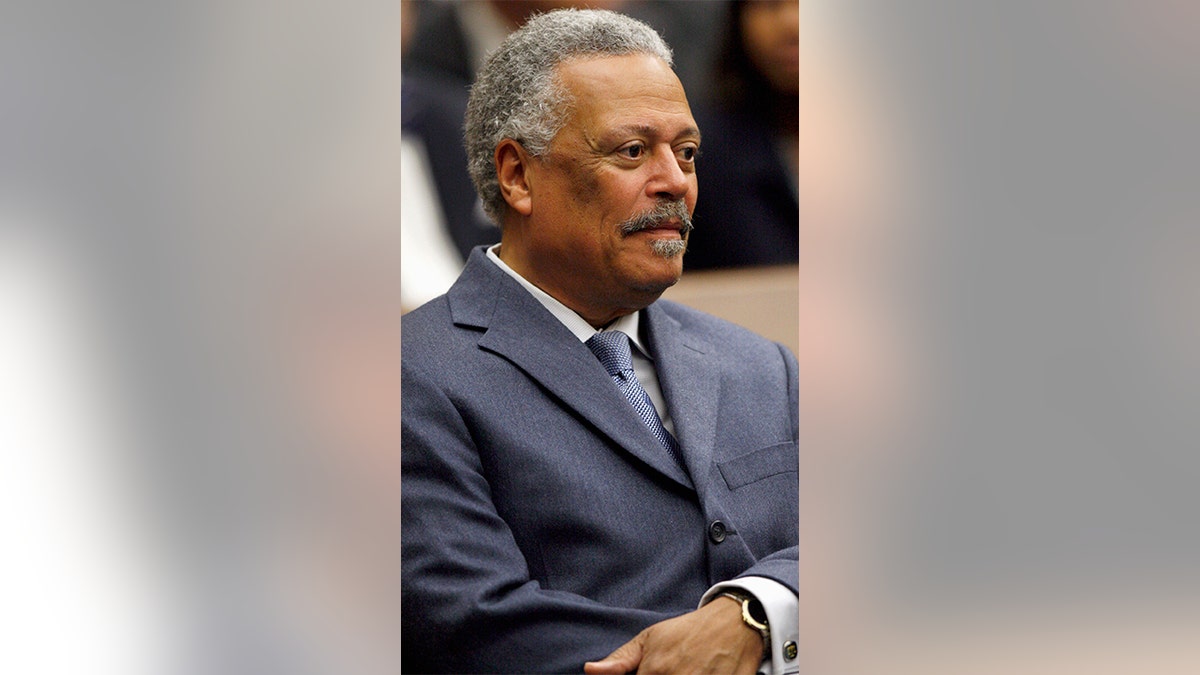Michael Flynn remains in legal limbo as full court to hear arguments over decision to dismiss case
The D.C. Circuit Court of Appeals announces the full court will hear the case of the DOJ's decision to drop charges against President Trump's former national security adviser; Doug McKelway reports.
The impartiality of District Judge Emmet Sullivan, who was the trial judge for former National Security Adviser Michael Flynn, appears as if it will be argued before a panel of judges.
The Washington, D.C., Circuit Court of Appeals, told parties to be ready to answer questions about the effect of federal statutes on judicial impartiality in a brief order issued Wednesday in connection to the legal dispute over the Justice Department's move to drop charges against Flynn.
The order, which indicated that one court may be planning to question the impartiality of a judge on another court, is the latest twist in the years-long legal saga.
After Flynn had pleaded guilty to lying to the FBI -- then later sought to withdraw that plea -- the DOJ in an unusual move sought to drop the charges, citing alleged misconduct by investigators and a lack of evidence. Then, in his own unusual move, Sullivan, who is the trial-level judge on the Flynn case, refused to immediately grant the motion to drop charges. He appointed an "amicus curie" -- Latin for "friend of the court" -- to argue against the DOJ motion.

FILE - In this May 1, 2008 file photo, U.S. District Judge Emmet G. Sullivan is pictured during a ceremony at the federal courthouse in Washington. Sullivan has been at the center of the Michael Flynn case. (AP Photo/Charles Dharapak) (AP)
CONTESTED FLYNN DISMISSAL TO GO BEFORE FULL APPEALS COURT AS LEGAL SAGA DRAGS ON
Flynn's lawyers then asked a three-judge panel on the appeals court to order Sullivan to grant the DOJ motion. They did, but Sullivan then sought a rehearing before the entire circuit court, which was granted.
Then Wednesday, ahead of the Aug. 11 rehearing before 10 of the 11 judges on the circuit, the court issued the order asking that for parties in the case to be prepared for oral arguments related to two federal laws that outline the circumstances of when a federal judge should recuse themselves from a legal proceeding.
It's unclear what the circuit court might plan to ask lawyers for Flynn and Sullivan who will appear for the hearing on Aug 11. But the last-second addition to the agenda could indicate that the judges may ask whether Sullivan could fairly preside over hearings after the protracted legal battle just to keep the case alive.
Discussions of Sullivan's impartiality did not come up in the previous oral arguments before the three-judge panel. But Flynn's lawyers in a recent filing accused the judge of "vindictive animus" against Flynn.

In this Feb. 1, 2017 file photo, National Security Adviser Michael Flynn speaks during the daily news briefing at the White House, in Washington. Flynn previously pleaded guilty to lying to the FBI, but then sought to withdraw his guilty plea before the DOJ moved to drop charges against him. (AP Photo/Carolyn Kaster)
CLICK HERE TO GET THE FOX NEWS APP
"Judge Sullivan’s stubborn disagreement with the Government’s decision to dismiss the case does not confer the right to contest it himself or through his amicus," Flynn's lawyers, including Sidney Powell, said. "His actions smack of vindictive animus against General Flynn and judicial overreach that have no place in America’s justice system. No precedent even suggests a 'hearing' on a substantial government motion to dismiss. Not one."
But Sullivan's legal team argued that it is allowable for judges to question the "reasoning and motives" of prosecutors when dismissing a case and that what is "extraordinary" here isn't that he is asking for a hearing on the prosecutorial motion, but that the circuit court issued the writ of mandamus -- a judicial order to a lower court -- preventing him from doing so.
"Judicial decisions are supposed to be based on the record before the court, not speculation about what the future may hold," a brief for Sullivan said. "All the district court has done is ensure adversarial briefing and an opportunity to ask questions about a pending motion. Considering both sides of an issue before ruling is not [beyond a judge's authority] — it is sound judicial practice."













































